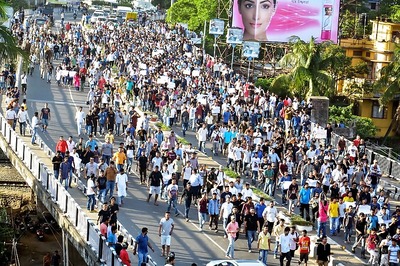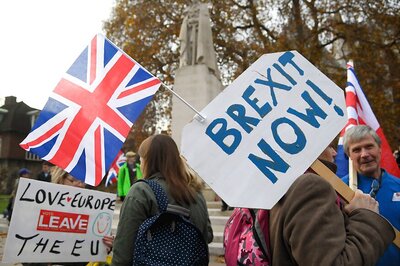
views
Prime Minister Narendra Modi will address the nation at 8pm on Thursday, during which he is likely to explain the government’s decision of stripping Jammu and Kashmir of its special status and downsizing it into two union territories.
The last time he addressed the nation was on March 27 during the Lok Sabha elections when he announced that India had demonstrated anti-satellite missile (A-Sat) capability by shooting down a live satellite.
The parliament on Tuesday approved a resolution abrogating special status accorded to Jammu and Kashmir under Article 370 of the Constitution. It also cleared a bill to split the state into two union territories of Jammu and Kashmir and Ladakh.
Ahead of the move, more than 7 million people in the Valley were put under a complete lockdown after the government shut off most communication with it, including internet, cellphone and landline networks. Thousands of additional troops were deployed to the region out of fear the government's steps could spark unrest.
Former chief ministers Omar Abdullah of the National Conference and Mehbooba Mufti of the Peoples Democratic Party have been put under arrest at Hari Niwas on Srinagar’s Gupkar road as a precautionary measure.
Modi’s proposed address comes days before the prime minister's customary address to the nation on Independence Day from the Red Fort.
Hailing the passage of the Bill as a “momentous occasion in our Parliamentary democracy”, Modi, who was present in Lok Sabha when it was passed, later tweeted: “I salute my sisters and brothers of Jammu, Kashmir and Ladakh for their courage and resilience. For years, vested interest groups who believed in emotional blackmail never cared for people’s empowerment. J&K is now free from their shackles. A new dawn, better tomorrow awaits!”
Union Home Minister Amit Shah, while debating the bill in Parliament said that Article 370 was creating doubts over J&K’s relations with India. “This is not a historical blunder but we are rectifying the historical blunder,” he said, dismissing the Opposition charge that the government was committing a mistake.
He rejected the suggestion that abrogation of Article 370 was a “communal agenda” and said the provision in the Constitution was discriminatory and against minorities, women and welfare of the people.

















Comments
0 comment